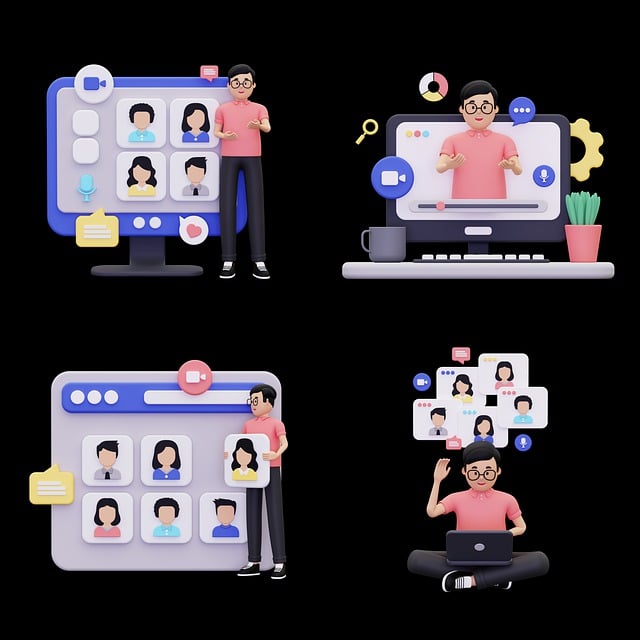In the digital age, law enforcement and academic researchers face challenges in maintaining online privacy and security while conducting discreet operations. Private Internet Access (PIA) emerges as a crucial tool, offering encrypted connections and IP address masking to protect identities and activities from external observation. By utilizing PIA and other privacy-enhancing tools like VPNs, ad blockers, and malware protection, professionals can browse the web securely, ensuring their digital footprint remains hidden. This is essential for gathering intelligence while protecting sensitive operations and personal safety. Future developments in encryption and AI analytics will further shape these trends, requiring ongoing public dialogue on data privacy and surveillance within democratic societies.
Law enforcement agents often require discreet web surfing capabilities to gather sensitive information without leaving digital footprints. In today’s digital age, where online activities are meticulously tracked, ensuring privacy and anonymity is paramount. This article explores the critical need for discrete browsing among LE agents, focusing on tools like Private Internet Access (PIA), its implementation best practices, and the ethical considerations surrounding this practice, drawing parallels with secure browsing needs of academic researchers.
- Understanding the Need for Discreet Browsing in Law Enforcement
- The Role of Private Internet Access (PIA) in Securing Online Activities
- Implementing PIA: Best Practices and Tools for LE Agents
- Ethical Considerations and Future Trends in Discreet Web Surfing
Understanding the Need for Discreet Browsing in Law Enforcement

In the digital age, law enforcement agencies face unique challenges in their investigations. One critical aspect often overlooked is the need for discreet web surfing capabilities. As criminal activities increasingly move online, officers require secure and private access to information, ensuring their browsing remains hidden from prying eyes. This is especially crucial when conducting surveillance, gathering intelligence, or accessing sensitive case files, as any trace of their digital footprint could compromise operations and put individuals at risk.
Discreet browsing plays a pivotal role in maintaining the integrity of investigations. Law enforcement agents must access vast online resources while ensuring their internet activity remains anonymous, using tools like Private Internet Access for Academic Researchers to shield their identities. This enables them to navigate the web without leaving behind digital footprints that could be traced back to their agencies or personal accounts, fostering a safe and secure environment for sensitive operations.
The Role of Private Internet Access (PIA) in Securing Online Activities

In the digital age, where online activities are integral to law enforcement operations, ensuring privacy and security has become paramount. This is where Private Internet Access (PIA) steps in as a crucial tool for officers, offering an encrypted connection that safeguards their internet traffic. PIA enables discreet web surfing by masking IP addresses, providing anonymity and protection against tracking.
For academic researchers and law enforcement agents alike, PIA facilitates secure access to the web without leaving digital footprints. This is especially vital during sensitive investigations where covert online operations are required. With PIA, officers can browse the internet freely, ensuring their activities remain confidential, much like a private network that deters prying eyes from uncovering their digital footprint.
Implementing PIA: Best Practices and Tools for LE Agents

Implementing a Private Internet Access (PIA) solution is a strategic move for law enforcement (LE) agents to enhance their online privacy and security while conducting discreet research. PIA offers a range of tools and best practices that can empower LE professionals to navigate the digital landscape with enhanced anonymity, ensuring their activities remain hidden from prying eyes.
To get started, LE agents should opt for reputable PIA providers known for their robust encryption protocols and strict no-logs policies. This guarantees that online activities are secure and untraceable. Utilizing virtual private networks (VPNs) is a fundamental step in maintaining anonymity during web browsing. By routing internet traffic through encrypted servers, VPNs mask IP addresses and locations, making it difficult for trackers to monitor activities. Additionally, agents can benefit from advanced features like ad blocking, malware protection, and secure browser extensions, further fortifying their online privacy while researching sensitive topics.
Ethical Considerations and Future Trends in Discreet Web Surfing

As law enforcement agents engage in discreet web surfing, ethical considerations come to the forefront. The balance between gathering crucial intelligence and preserving privacy rights is a delicate one. Agents must adhere to strict protocols and guidelines to ensure they do not overstep boundaries or infringe upon citizens’ private Internet access—a principle essential for maintaining public trust. Moreover, the use of sophisticated technologies like Private Internet Access (PIA) for academic researchers offers enhanced security and anonymity, making it a valuable tool in discreet operations.
Looking ahead, future trends in discreet web surfing may involve more advanced encryption methods and AI-driven analytics to sift through vast amounts of online data. These developments promise improved efficiency but also raise new ethical debates about data privacy and surveillance. Law enforcement agencies must adapt to these technological shifts while fostering public dialogue on the role of digital surveillance in a democratic society.
Law enforcement agents now have a powerful tool at their disposal with Private Internet Access (PIA) to ensure discreet web surfing, enhancing their operational capabilities. By utilizing PIA, LE agencies can secure online activities, protect sensitive investigations, and maintain the privacy of citizens they serve. With best practices implemented and ethical considerations in mind, future trends suggest that discreet browsing will continue to evolve, ensuring law enforcement remains one step ahead in the digital realm. This is particularly relevant for academic researchers who, while not engaged in criminal investigations, can also benefit from PIA’s enhanced privacy features for their own sensitive data needs.
